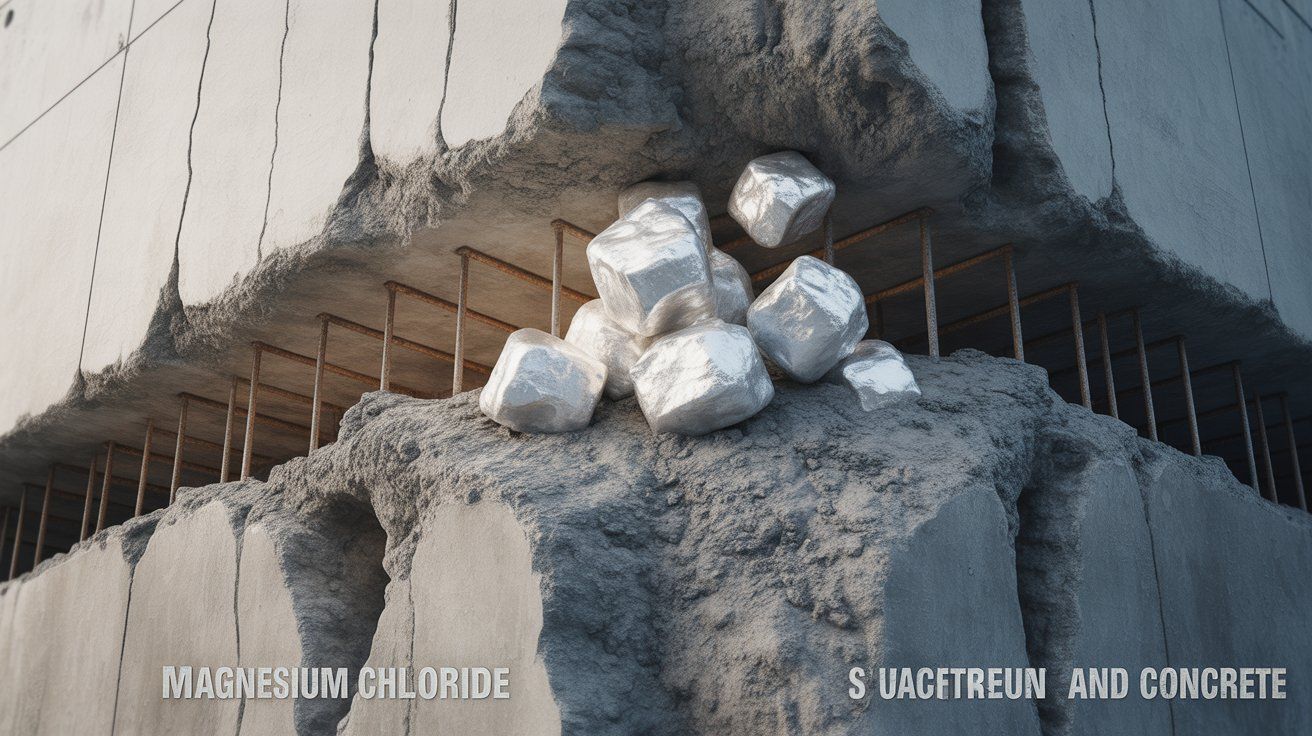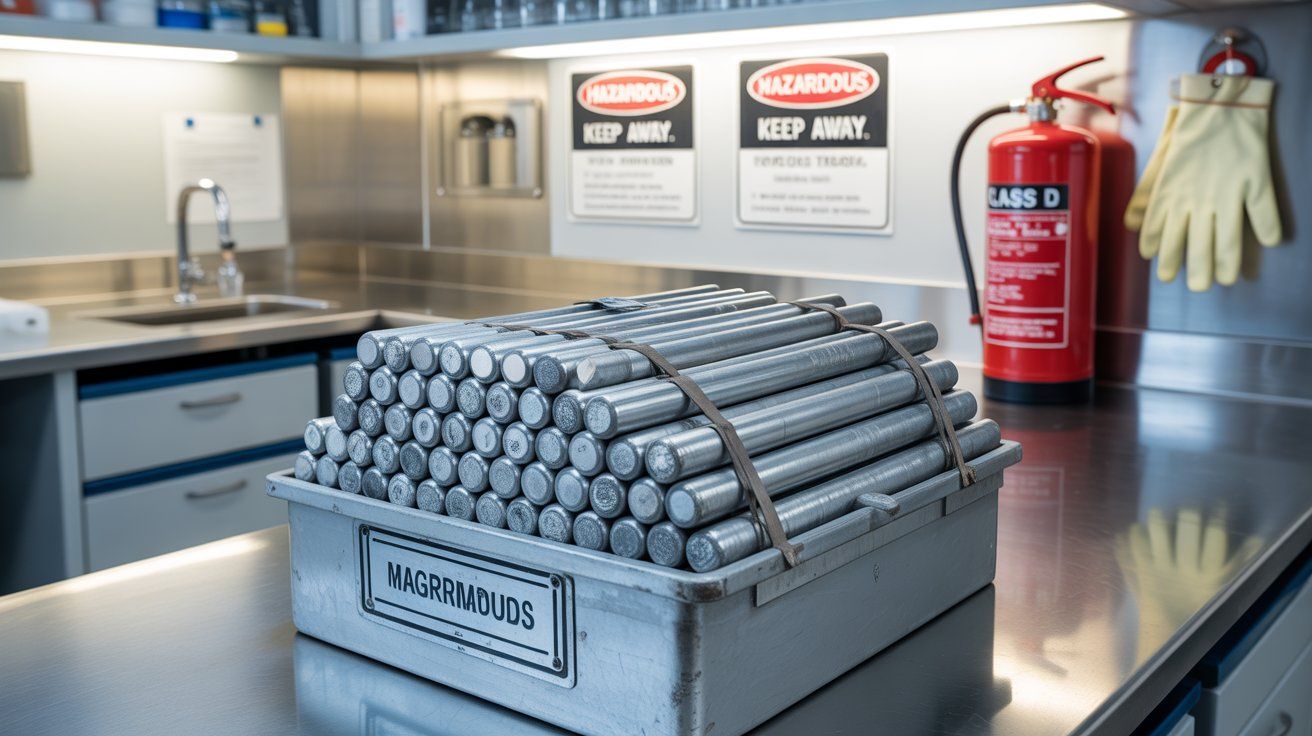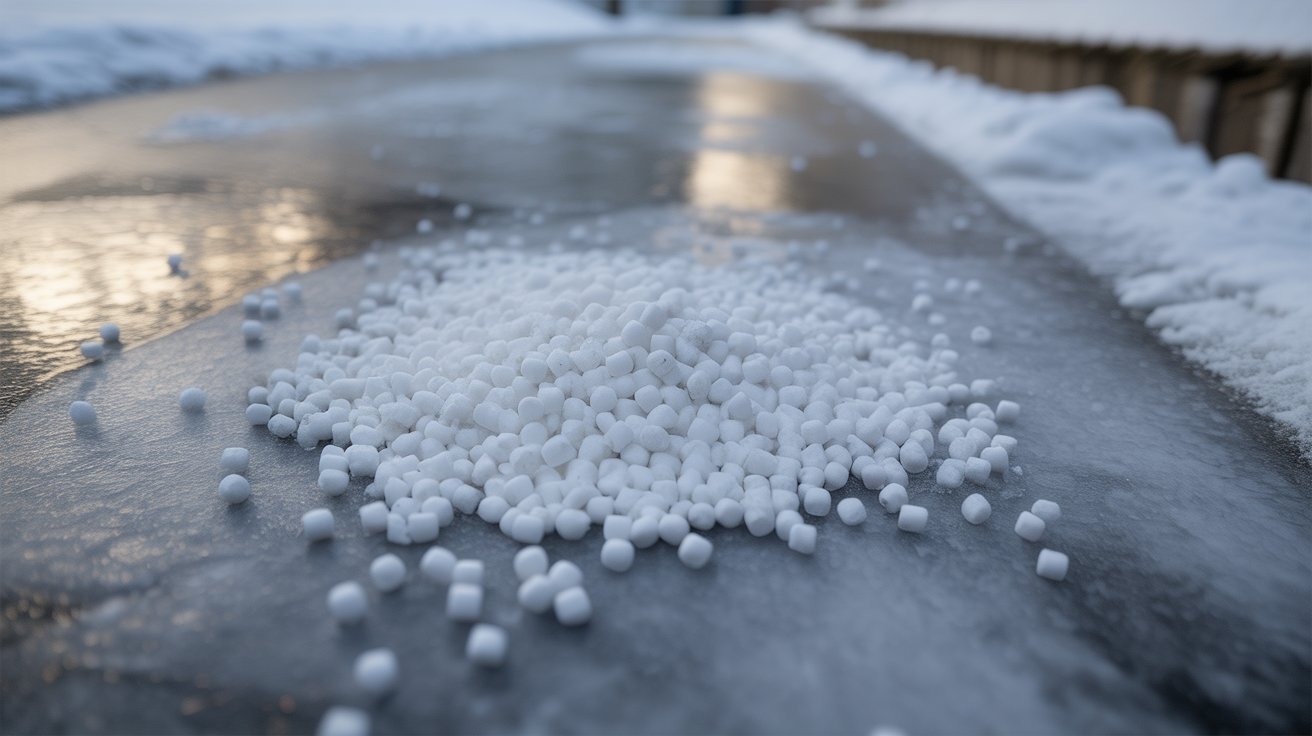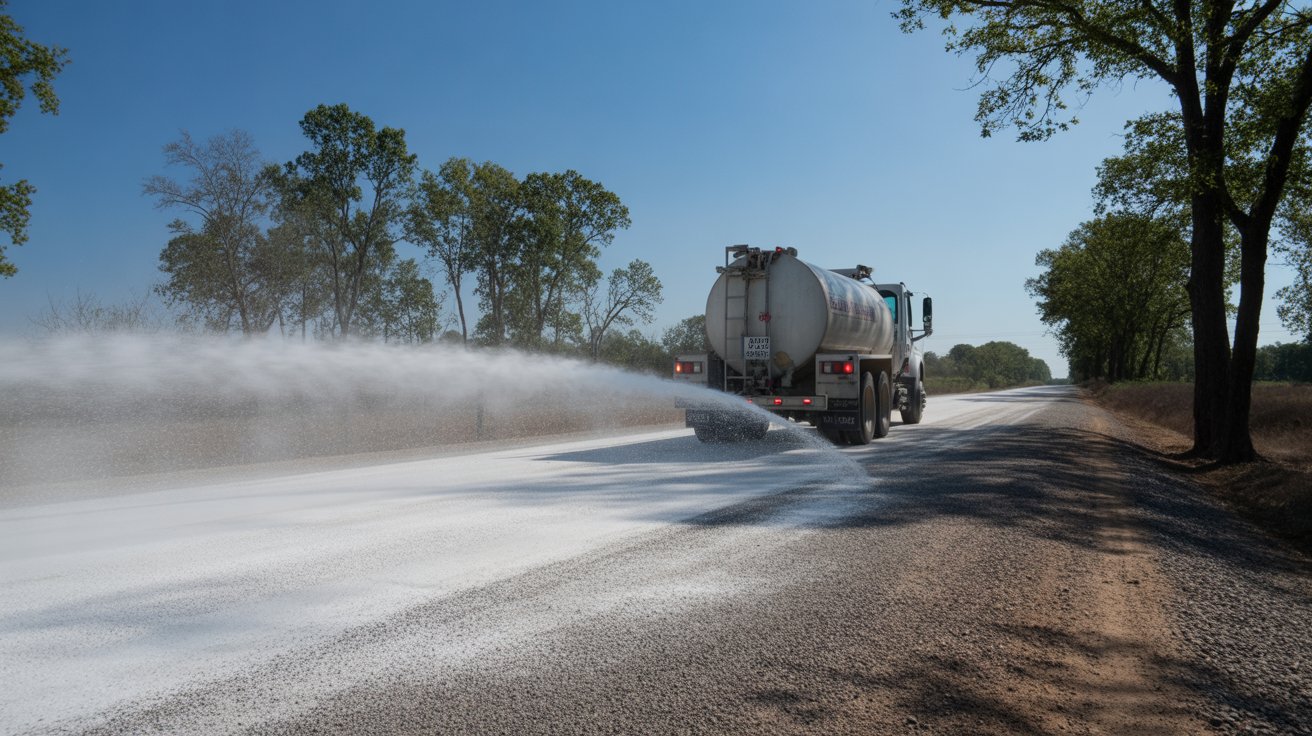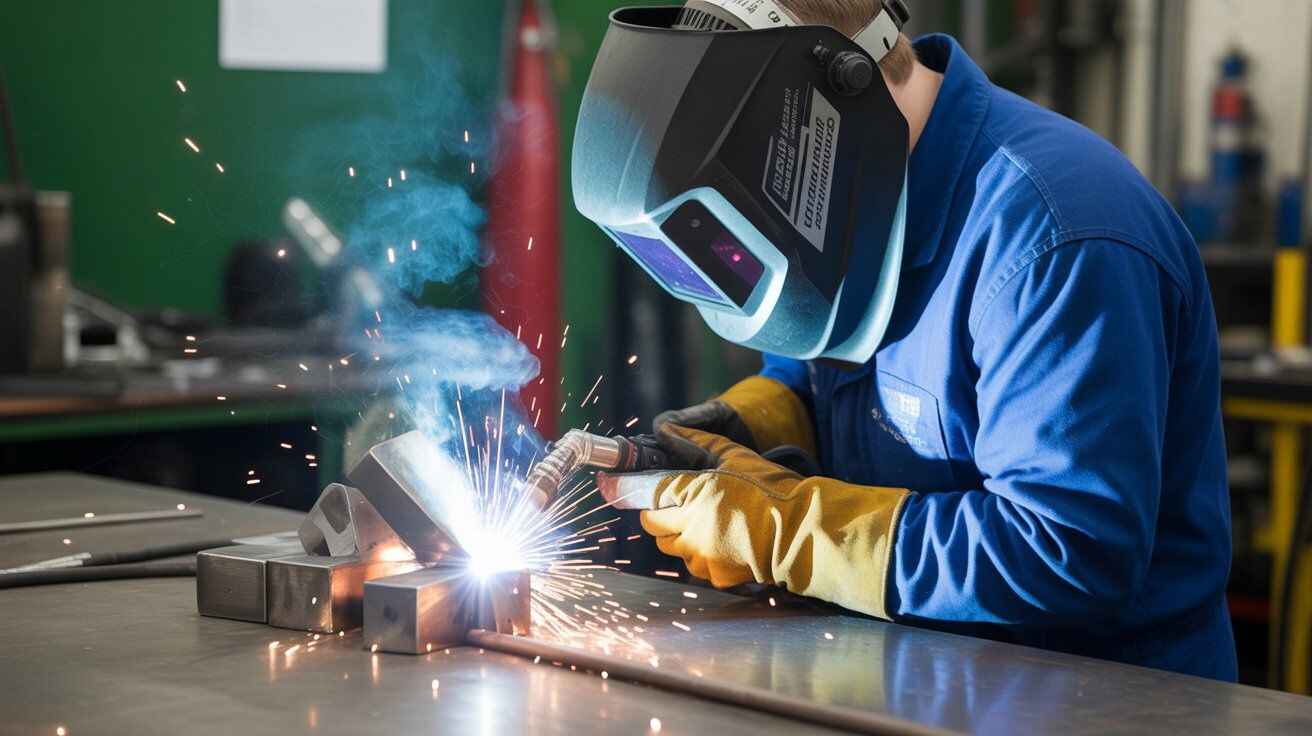Magnesium chloride and concrete can cause porosity, corrosion, scaling, and long-term strength loss, despite improving winter safety.
Magnesium chloride and concrete
Concrete’s durability can be compromised by chemical exposure, especially deicing salts. Among these, magnesium chloride and concrete present a unique challenge.
While magnesium chloride improves road safety in winter, it can trigger chloride corrosion and weaken the cement structure.
Understanding this interaction helps engineers and builders protect concrete durability and prevent long-term damage from repeated salt exposure in cold and coastal environments.
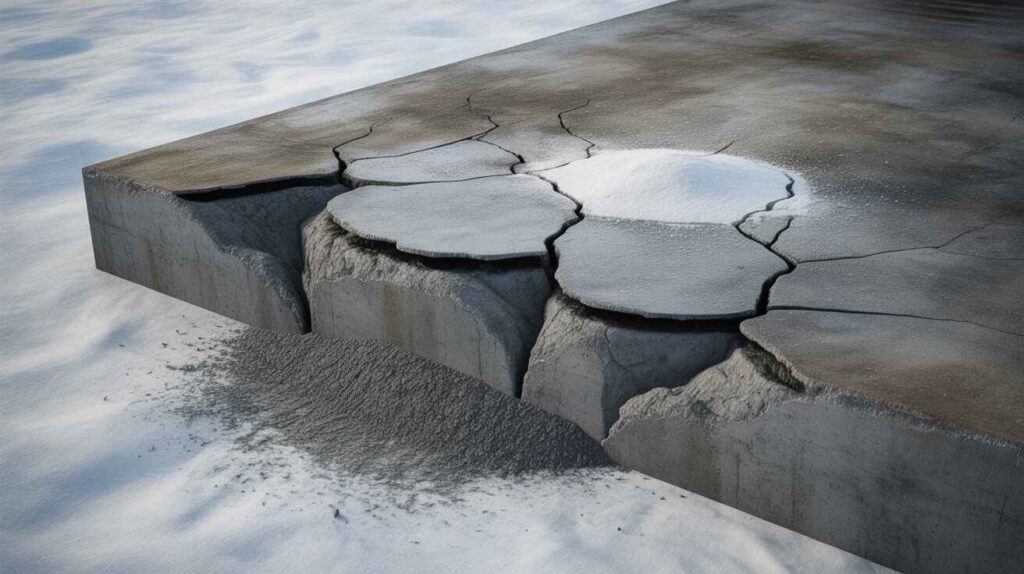
What is Magnesium Chloride?
Magnesium chloride (MgCl₂) is a highly soluble salt used in deicing, dust control, and concrete acceleration.
It lowers the freezing point of water, making it effective for winter maintenance. However, when magnesium chloride and concrete interact, chemical reactions occur that can reduce strength and increase permeability.
Understanding its composition and behavior is vital for engineers aiming to balance efficiency and long-term concrete durability.
Why Magnesium Chloride is Used in Concrete?
Magnesium chloride is often added to concrete as an accelerator, helping it set faster in cold conditions. It also enhances workability and early strength during winter projects.
However, repeated exposure of magnesium chloride and concrete can compromise durability by encouraging chloride ion ingress and reinforcement corrosion.
Balancing its short-term benefits with potential long-term risks is crucial for engineers designing concrete structures in harsh or freezing environments.
How Magnesium Chloride Affects Concrete
When magnesium chloride penetrates concrete, it reacts with cement compounds to form brucite and magnesium-silicate-hydrate (M-S-H), which are weaker than normal cement paste.
These reactions increase porosity and allow chloride ions to reach steel reinforcement, leading to corrosion and cracking. Over time, magnesium chloride and concrete exposure causes scaling, expansion, and strength loss, especially under freeze-thaw conditions or continuous moisture presence.
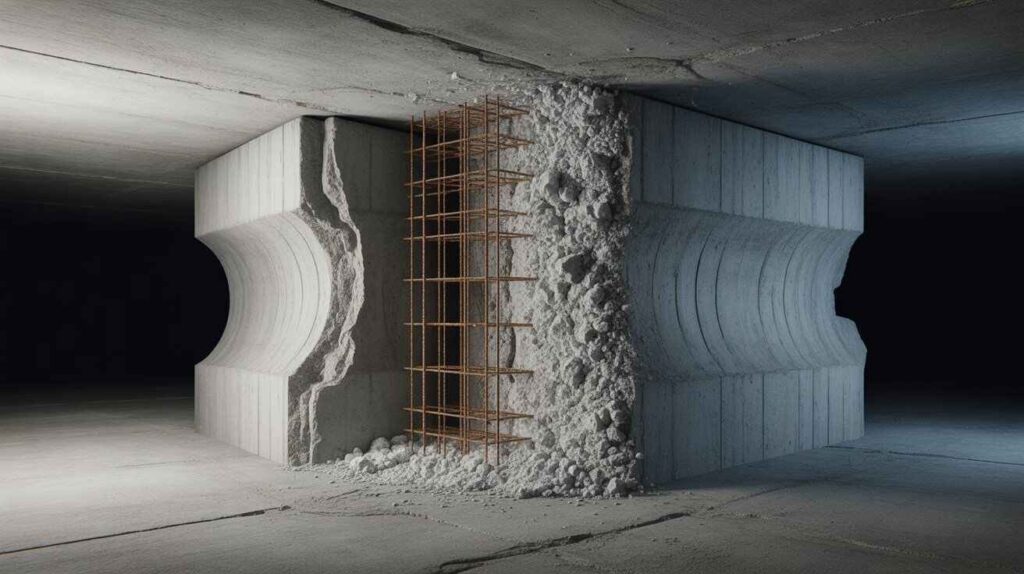
Risks and Long-Term Damage
Prolonged exposure to magnesium chloride and concrete can result in surface scaling, cracking, and reinforcement corrosion. The chemical reaction between chloride ions and cement compounds weakens the matrix, reducing compressive strength and durability.
In high concentrations, magnesium chloride accelerates pitting corrosion in steel bars and increases moisture penetration. Over time, this leads to expansion, delamination, and concrete failure, especially in cold or wet environments.
Magnesium Chloride vs Other Deicing Salts
| Deicing Salt | Initial Effect on Concrete | Long-Term Effect / Chemical Damage | Corrosion Risk | Other Notes |
|---|---|---|---|---|
| Magnesium Chloride | Less aggressive initially | Can cause long-term chemical damage in cement paste | Moderate | Safer than calcium chloride initially but may deteriorate concrete over time |
| Calcium Chloride | Accelerates concrete setting | Can lead to chemical interactions in cement | High | High corrosion potential; can damage steel reinforcement |
| Sodium Chloride | Minimal initial effect | Mainly causes surface scaling | Moderate | Common and cheap; less chemical penetration but may erode surface over time |
Mitigation and Best Practices
To protect magnesium chloride and concrete structures, use a low water-cement ratio and supplementary cementitious materials (SCMs) like fly ash or slag.
These reduce permeability and chloride ion ingress. Air entrainment and proper curing enhance freeze-thaw resistance. Applying surface sealers or corrosion inhibitors limits moisture penetration and steel damage. Routine inspection and maintenance ensure long-term concrete durability against magnesium chloride exposure in harsh environments.
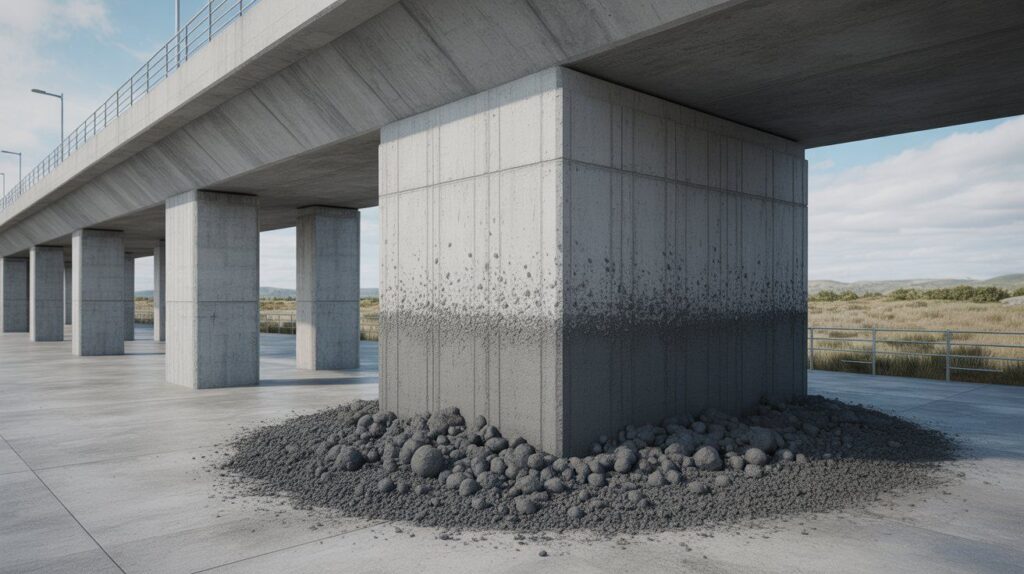
FAQs
Q1. Does magnesium chloride damage concrete?
Yes, prolonged exposure to magnesium chloride and concrete causes chemical attack and corrosion, especially when concentrations are high or concrete quality is low.
Q2. Is magnesium chloride safer than calcium chloride for concrete?
Not entirely. Though magnesium chloride is less harsh in some cases, both can cause chloride-induced corrosion and strength loss if overused.
Q3. How can we prevent magnesium chloride damage?
Use SCMs, air-entrainment, low w/c ratio, and surface sealers to minimize chloride ingress and maintain durability.
Q4. What is the safest deicer for concrete?
Alternatives like potassium acetate or urea-based deicers are gentler on concrete surfaces and reinforcement.

Hamid Raza, aged 65, is a seasoned expert in nutrition, health supplements, and wellness, with over four decades of experience researching and educating people about essential minerals like magnesium. His work focuses on helping individuals improve energy, bone health, muscle function, and overall wellness through scientifically-backed magnesium knowledge.
Throughout his career, Hamid has contributed to numerous health articles, research studies, and wellness blogs, making complex nutritional science accessible to everyday readers. Passionate about natural health solutions, he guides readers on choosing the right magnesium supplements for optimal health.

